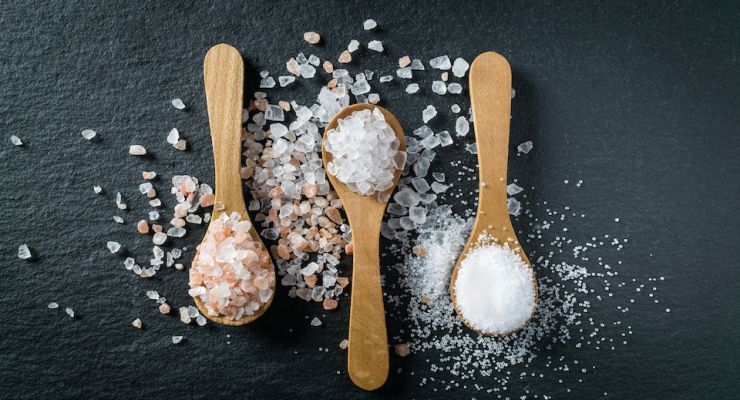For decades doctors, nutritionists, and health experts have been warning the general populace about the dangers of salt. Yes, that seemingly insignificant seasoning you sprinkle over your meat, eggs, and just about everything else has long been condemned as a dietary villain. But what is the truth behind salt? Is it really as bad as everyone thinks? The answer is a complicated one…
Salt has a long and varied history and has often been linked to increased blood pressure and various cardiovascular complications. However, evidence to back up these claims has been scant, and many of the heralded horrors of salt are merely anecdotal. In fact, recent research claims that eating too little (of the right kind of salt) may actually be just as detrimental, if not more, than eating too much. Plus, analysis of over 6,000 individuals shows that there is no identifiable connection between salt intake, high blood pressure, and risk of heart disease
Busting the salt myth
Different types of salt
As with most things, not all salt is created equal. The difference between healthy salt, such as Himalayan pink salt and processed table salt is astonishing. Heavily processed salt is where many of the health warnings stem from. And with good reason! The caution makes sense considering that table salt is stripped of any beneficial nutrients, bleached, and processed until it barely resembles what it once was. This type of salt serves merely as a blood pressure-increasing spice that adds a little flavor to your food.
Real Salt and Himalayan pink salt, on the other hand, are loaded with essential vitamins and minerals that your body needs to function. Cutting salt out of your diet entirely could lead to severe deficiencies and health complications. Not to mention a joyless life of bland food. But, it is essential to purchase the right kind of salt.
Lowering salt intake doesn’t significantly affect blood pressure
Cutting back from a normal salt intake to a no-salt or dramatically decreased salt diet makes little difference in the blood pressure levels of healthy individuals. In fact, reducing salt only made a difference for those with a medical condition known as salt-sensitive hypertension. Of course, if you have this condition, or your doctor recommends limiting salt intake, always follow the guidelines of your medical professional.
Reasons to include salt in your diet
When we say salt, we mean healthy, real salt in moderate amounts so that your body can thrive and function optimally. It is important to watch out for added salt in various products and processed foods. Stick to low sodium condiments like soy sauce and ketchup and add your own sea salt for flavor, if necessary.
Not only can eating the right amount of salt help you feel better but if you don’t get enough salt in your diet you may be subject to the following symptoms:
- Reduced hydration
- Muscle cramps
- Higher risk of heart attack
- Headaches
- Weakness
- Cognitive decline in the elderly
- Irritability
Here are just a few other reasons to ensure that your meal plan includes healthy sources of beneficial salt. Always purchase real, unbleached sea salt with no added ingredients.
Encourages hydration
Contrary to popular belief (and the effects of table salt), sea salt doesn’t make you more thirsty. In fact, maintaining proper levels of salt in your body actually helps keep you hydrated. The potassium and sodium from sea salt work together to retain water and prevent excessive dehydration.
Healthy nervous system
For your nervous system to function effectively, it needs water and salt for electrical conduction to send and receive proper signals. Plus, your brain needs a balance of sodium and electrolytes that help regulate water-flow in your body.
Protects against vascular disease
Once again, though it may seem contradictory to everything you previously thought, sea salt (not table salt) could help protect against heart disease and promote vascular health. Of course, table salt will have the opposite effect, so it is critical to pay attention to what kind of salt you are consuming.
Of course, just because salt does have important health benefits, doesn’t mean you should unscrew the cap and dump a pile on everything you eat. Use salt reasonably, always taste your food before adding salt, and you will be sure to get an adequate amount in your system. Remember, season responsibly!
-Susan Patterson

